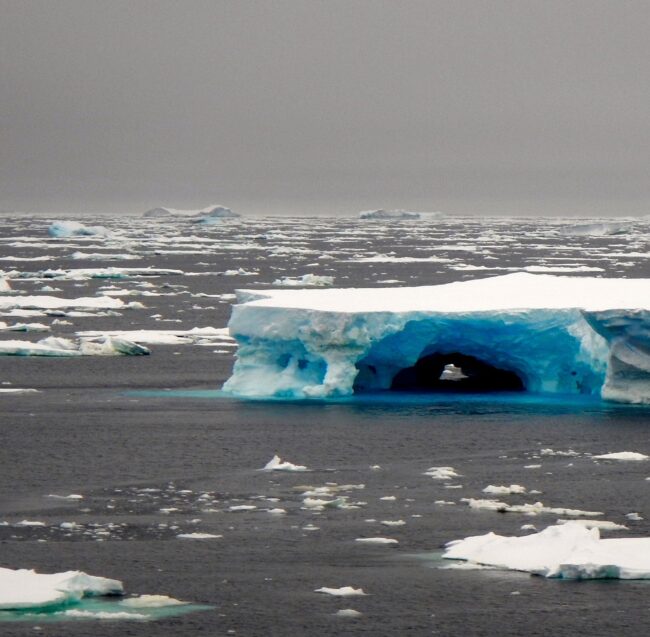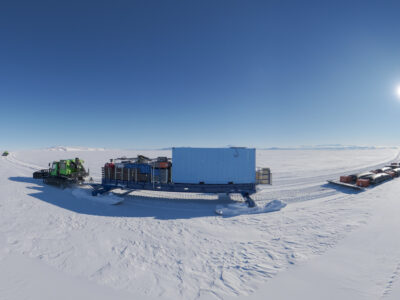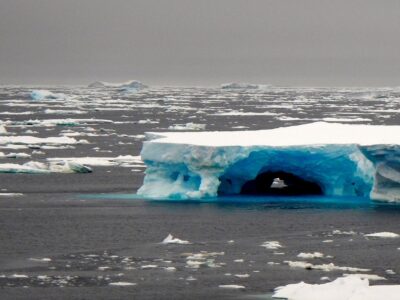Antarctica
-

Unexpected Climate Feedback Links Antarctic Ice Sheet With Reduced Carbon Uptake
New study reveals surprising link between West Antarctic Ice Sheet (WAIS) retreat and algae growth over the past 500,000 years.
-

Scientists Search for Ancient Climate Clues Beneath Antarctic Ice
An international team, including researchers from Columbia’s Lamont-Doherty Earth Observatory, is attempting to drill for mud and rocks holding critical insights about the fate of the West Antarctic Ice Sheet in our warming world.
-

Scientists Respond to the Planned Termination of the Only U.S. Antarctic Research Vessel
In a signed letter, 170 researchers, including 10 from Columbia University, urged Congress and National Science Foundation to continue the operation of the Nathaniel B. Palmer.
-

For Good Measure: Scientists Collaborate to Track Sea Level Rise From Glaciers in Greenland and Antarctica
Scientists who study both the ice sheets and nearby peripheral glaciers are working together to improve the accuracy of estimated sea level rise.
-

Key Ocean Current Contains a Warning on Climate
A new study shows that a giant current circling Antarctica has speeded up during past warm periods, eating away at the polar ice. It’s doing it again now.
-

In Massive Project, Scientists to Probe Deposits Beneath West Antarctic Ice Sheet
Drilling into sub-ice deposits left behind during times when the Earth was warmer than today should provide insights into how a massive ice sheet will react to human-induced climate change.
-

Closing Out Climate Week: Why 2 Degrees is Too High for the Cryosphere
Experts say that snow and ice loss will create conditions beyond the limits of adaptation for billions of people if climate warming reaches 2 degrees Celsius.
-

Why Care About the Polar Regions? These Polar Climate Ambassadors Will Tell You.
The polar regions are a critical aspect of the climate crisis, but polar science is not always accessible, especially to young students. The Polar Climate Ambassadors program seeks to help close this gap.
-

Fast-Wasting Antarctic Glacier Lost Ice Even Faster in Past, Raising Concerns for Future
Some time in the past 200 years, Antarctica’s giant Thwaites Glacier saw a period of retreat much faster than even that observed in recent years. It could be a warning of rapid sea-level rise in the near future.

By studying thousands of buildings and analyzing their electricity use, Columbia Climate School Dean Alexis Abramson has been able to uncover ways to significantly cut energy consumption and emissions. Watch the Video: “Engineering a Cooler Future Through Smarter Buildings“
